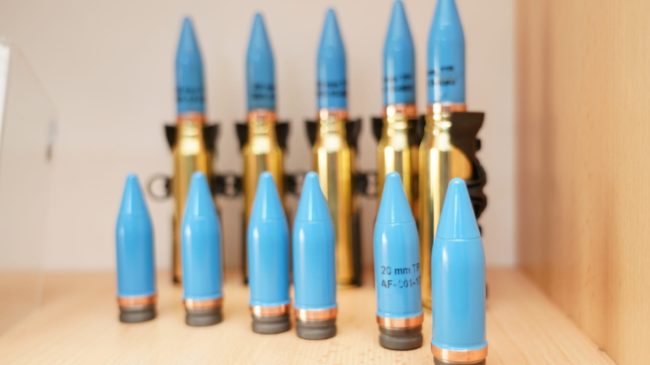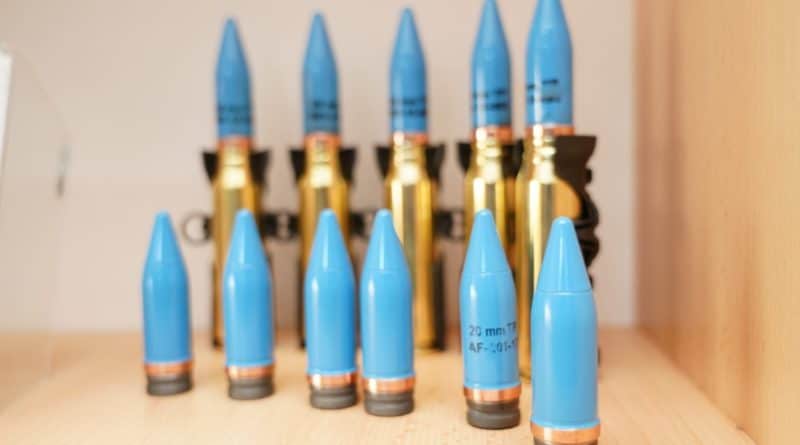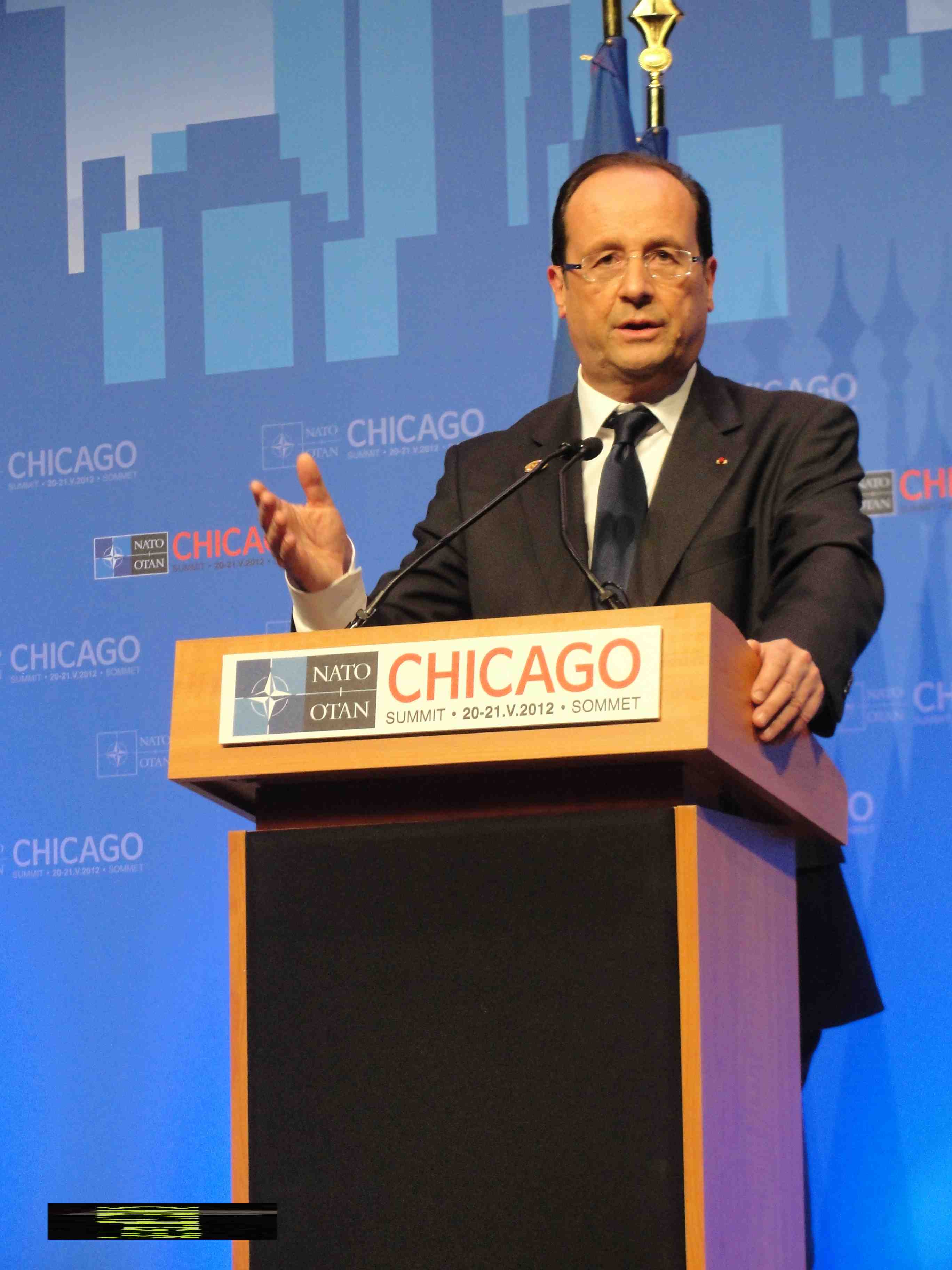[Analysis] The Europeans are blocking the delivery of ammunition to Ukraine? A little exaggerated no! Explanations
(B2) The Europeans cannot agree on ammunition. And it's all France's fault. This is the little refrain heard in the corridors of Brussels to kyiv via Warsaw. What exactly...

A "French bashing" relayed by several press articles, in particular in the Polish press (Pap agency) or European (Politico), and by a few politicians, notably the Ukrainian Foreign Minister Dmytro Kuleba, who cracked a tweet rather clumsy (see box).
A three-part plan
You have to start over from the beginning. On February 9, the Heads (of State and Government) decided during the European Council to speed up arms deliveries to Ukraine, particularly ammunition. A package has been drawn up, approved by ministers on March 20 (read: [Decryption] At least 2,5 billion euros to boost ammunition production in the EU and delivery to Ukraine). This plan includes three distinct components - even if they share the same strategic objective (supporting Ukraine) - which are spread over time, as B2 explained in February (read: [Confidential] Purchase of ammunition in common. Emergency, Short term, Medium term. Solutions emerge).
Where are the three parts?
The first component (emergency) aims to deliver ammunition to Ukraine, as quickly as possible, from existing stocks or from orders already placed, 'rerouted' to Ukraine. Endowed with 1 billion euros (*), it has already been approved by the 27, with retroactive effect from February 9 (read: [Decryption] The billion euros for urgent ammunition deliveries to Ukraine approved).
The second part, endowed with another billion euros, aims to finance joint purchases, for the short-medium term, it is still under discussion, within the ambassadors of the 27. And an agreement is expected from in a few days, at the beginning of May at the latest normally (read: [Confidential] The ammunition package is becoming clearer. Not without difficulties).
The third and final component, targeting the medium term and strengthening the capacity of European industry to produce, has not yet been discussed. A little more complex, it must be developed from the European Commission. This is where the problem lies rather today. Everyone expected a proposal by the end of the month. But according to my information, the team of commissioner Thierry Breton is having a little trouble making its voice heard within the college of commissioners. The guardians of the European budgetary 'treasury' are having their ears pulled a little. In diplomatic terms, we speak of a “busy” Commission agenda.
Where is the blockage? Where is the urgency?
To speak of blockage, of non-respect of the package, or even of the possible endangerment of Ukrainian lives (as D. Kuleba says, cf. box) is therefore outdated. There are difficulties in specifying the terms of the European agreement. Certainly. But we are in the very logic of the European machinery which must transcribe, in precise and legal terms, a political agreement which has not been specified at all. Ambiguity is sometimes the virtue of an agreement. The few days spent discussing in no way threaten both the Ukrainian defense (and the counter-offensive in preparation) or compromise the substance of the decision.
On the one hand, the "job" has already been done on the first and most important aspect: urgency. Deliveries have already been made for a significant amount. On the other hand, the second part (joint purchases) will not be effective for several months. Purchases must be launched in June at the earliest, by September at the latest (to be eligible for European funding). And the actual arrival of purchased ammunition will not take place before the end of the year (at best), or rather 2024 or 2025 (the production time in quantity). In other words, we are more in the hypothesis of the third Russian offensive or Ukrainian counter-offensive (next year) rather than the current one (the second offensive or counter-offensive). In practice, the 27 have until May 31 at the latest to approve this decision.
In the meantime, nothing prohibits a state from getting ahead of the call and supplying ammunition to Ukraine from its own budget or triggering procurement procedures, without waiting. He will be able to benefit from the European "bonus", if he respects the main conditions. The three main ones are already known: 1° it takes several people to buy, 2° to do it between Europeans and 3° to buy from industries based in Europe.
A process has already been launched, within the framework of the European Defense Agency, for the purchase of 155 mm type ammunition, bringing together almost all countries (26 States out of 27 according to my last count). Other processes are underway at the national level, on the side of the Germans and the French, in particular.
Making such purchases does not happen in 24 hours. It is necessary to define who may be interested, determine what will be purchased (what types of ammunition, in what quantities), how to do it (who will assume the purchase, what will be the share of each, financial and in material delivered, the timetable delivery) and finally from whom to buy and the procedure to follow (call for tenders or over-the-counter contract).
As for the difficulty of buying from European industry, invoked by certain Member States (Poland in particular), to justify opening up the markets, this is a false pretense. On the one hand, it seems logical that European money (2/3 supplied by the German-French-Spanish-Italian quartet) should go to consolidate European industry rather than finance South Korean, Turkish or Serbian industry. Next, contrary to popular belief, Europe has resources. Most states have a local industry capable of supplying ammunition (NATO or ex-Soviet standard). From the Polish Dezamet to the French Nexter via the German Rheinmetall, the Italian Leonardo, the Bulgarian VMZ, the Romanian Romam or the Finnish-Norwegian Nammo, the European industrial fabric is ultimately quite rich. And it's running full blast. " We don't have to be ashamed of our small muscles testifies (rightly) a diplomat.
It should also be specified that when we speak of European financing, it is not a question of an immediate subsidy. The promised money will arrive in the pockets of the national budgets... in a long time. In fact, we are talking about " repaying "the deliveries, once these" make to Ukraine (delivery note in support). And the payment obeys a more or less distant schedule. According to my information, these refunds could not take place before horizon... 2025!
In other words, one more week in the discussion... doesn't really change the situation either politically or militarily. It would, however, be different if the discussion continued until June.
(Nicolas Gros-Verheyde)
---
Comment: When Kuleba slips
The words of Ukrainian Minister Dmytro Kuleba scolding the European Union for its " inability " to implement " his own decision "can be put on the account of a certain" frustration ". But when the Ukrainian chief diplomat speaks of " a test of whether the EU has strategic autonomy in taking crucial new security decisions » and that he adds that « for Ukraine, the cost of inaction is measured in human lives », he is committing a serious, political error, not really commensurate with the events.
This comment indeed testifies to a serious lack of knowledge of the file. To have strategic autonomy of action, in the medium term, you should not buy abroad, but develop production internally. Which is in accordance with the Ukrainian interest. Without this European rear base, Ukraine will not be able to carry out its counter-offensive for long.
As for evoking possible threatened Ukrainian lives, it is totally derogatory, bordering on lying, and in any case not worthy of a political leader who is asking to join the European Union. There is no Ukrainian life threatened by the few more days taken to decide on a decision that will be effective... in 2024 at best.
-------
* The billion euros officially are in current prices and not 2018 prices as mentioned by mistake.
Read also:


